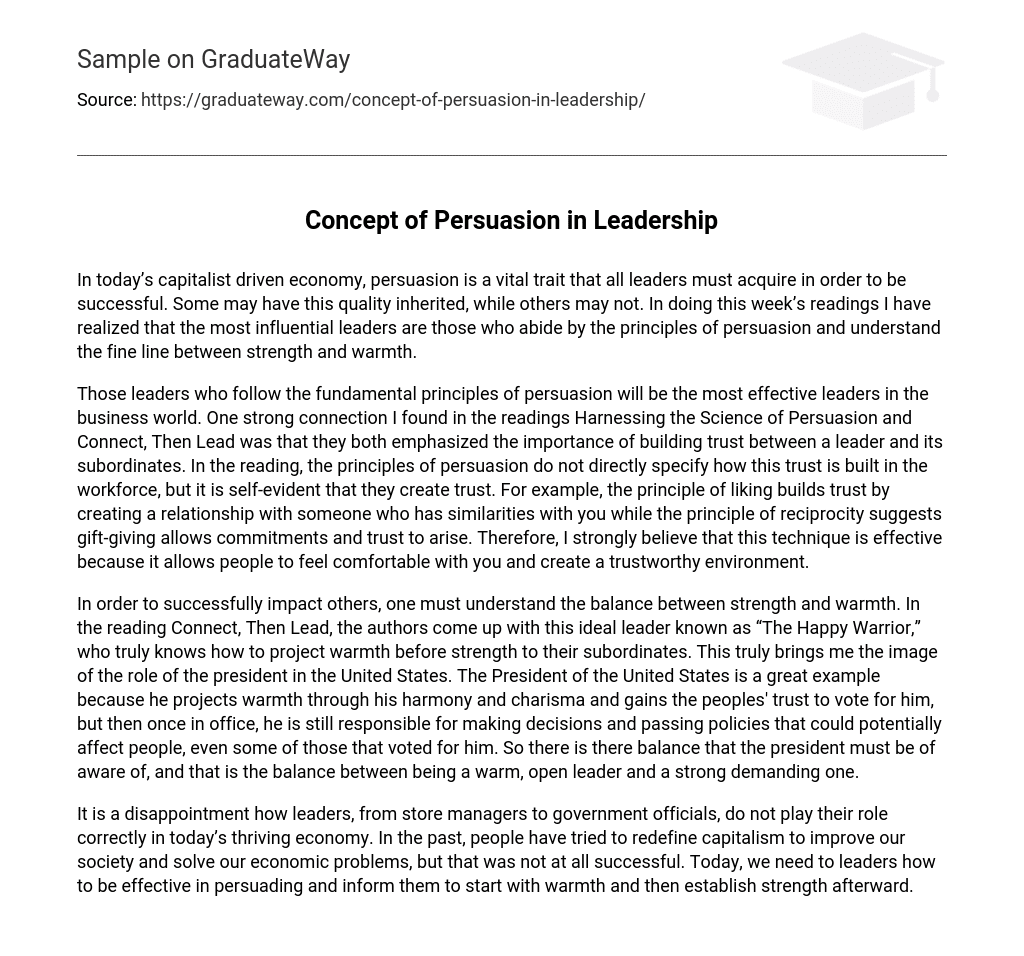In today’s capitalist driven economy, persuasion is a vital trait that all leaders must acquire in order to be successful. Some may have this quality inherited, while others may not. In doing this week’s readings I have realized that the most influential leaders are those who abide by the principles of persuasion and understand the fine line between strength and warmth.
Those leaders who follow the fundamental principles of persuasion will be the most effective leaders in the business world. One strong connection I found in the readings Harnessing the Science of Persuasion and Connect, Then Lead was that they both emphasized the importance of building trust between a leader and its subordinates. In the reading, the principles of persuasion do not directly specify how this trust is built in the workforce, but it is self-evident that they create trust. For example, the principle of liking builds trust by creating a relationship with someone who has similarities with you while the principle of reciprocity suggests gift-giving allows commitments and trust to arise. Therefore, I strongly believe that this technique is effective because it allows people to feel comfortable with you and create a trustworthy environment.
In order to successfully impact others, one must understand the balance between strength and warmth. In the reading Connect, Then Lead, the authors come up with this ideal leader known as “The Happy Warrior,” who truly knows how to project warmth before strength to their subordinates. This truly brings me the image of the role of the president in the United States. The President of the United States is a great example because he projects warmth through his harmony and charisma and gains the peoples’ trust to vote for him, but then once in office, he is still responsible for making decisions and passing policies that could potentially affect people, even some of those that voted for him. So there is there balance that the president must be of aware of, and that is the balance between being a warm, open leader and a strong demanding one.
It is a disappointment how leaders, from store managers to government officials, do not play their role correctly in today’s thriving economy. In the past, people have tried to redefine capitalism to improve our society and solve our economic problems, but that was not at all successful. Today, we need to leaders how to be effective in persuading and inform them to start with warmth and then establish strength afterward.





